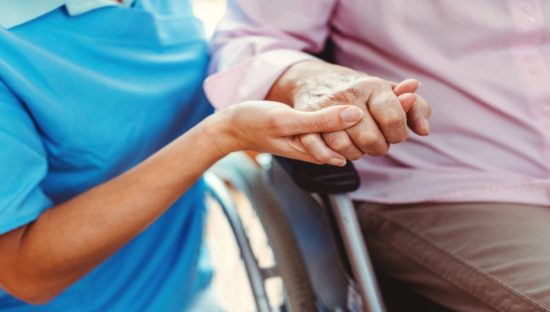Report identifies risks from food taken into patients

There are gaps in policy, communication and staff training related to foods given to people in healthcare settings in Ireland, according to a report.
The report, published by safefood, examined food safety risks linked to food brought into hospitals, residential care and nursing homes for vulnerable patients on the island of Ireland. Such people have an increased risk of contracting a foodborne illness.
Key drivers for bringing food included patient preference, supplementing in-house catering, and emotional connections. Risks included unsafe storage, inappropriate food choices, and lack of monitoring.
There are legal requirements governing healthcare settings. However, visitors and relatives producing home-cooked meals are not held to the same standards.
Focus groups and staff interviews
A review of 52 hospitals’ and 22 care/nursing homes’ websites for food policies across Ireland found that there was no formal, consistent policy used across these settings. The variability in approach and policies, plus the omission of specific details, may cause confusion for visitors around what is and is not permitted. However, the majority of sites did highlight some general guidance to visitors on food from external sources.
Seven focus groups were conducted, involving 26 participants with 17 from Northern Ireland and nine from the Republic of Ireland. Results indicated a good general knowledge of food safety but a lack of awareness of food safety policies or advice relating to food brought into or bought in healthcare settings for patient consumption. The majority of people highlighted a lack of clear and consistent food safety guidance.
One respondent brought in homemade custard and yogurt-based trifles for her father, recognizing their high-risk nature but prioritizing his preferences and appetite.
A total of 36 managers and healthcare professionals participated in interviews.
Most managers lacked awareness and did not implement a food safety and hygiene policy within their care setting. The majority could not recall if there was a policy or what it specified.
Some healthcare managers and supervisors felt it was not their role to monitor food safety but believed it was the responsibility of relatives of patients. Healthcare managers reported instances of food stored in lockers, drawers or wardrobes.
Overall, 58 percent of interviewees reported that they had not received any formal food safety and hygiene training.
Main recommendations
A follow-up focus group with five participants made four recommendations to improve food safety in healthcare settings.
Participants agreed that an advertising campaign would be useful to increase awareness of high-risk foods and the potential danger of consumption.
Respondents said a clear food safety policy should be implemented by healthcare settings across Ireland. While an approach of “no external food” would not be achievable, a policy where no hot foods are permitted would be good when visiting vulnerable patients because of the increased risk of food poisoning.
Participants agreed that a clear process of communicating food safety policy to visitors should be required pre-visit.
Most people agreed that food safety and hygiene training for staff who handle food would be useful. However, all visitors felt that bringing food from external sources into care settings was their own responsibility.
(To sign up for a free subscription to Food Safety News, clickhere)
Source: https://www.foodsafetynews.com/2025/10/report-identifies-risks-from-food-taken-into-patients/
Anyone can join.
Anyone can contribute.
Anyone can become informed about their world.
"United We Stand" Click Here To Create Your Personal Citizen Journalist Account Today, Be Sure To Invite Your Friends.
Before It’s News® is a community of individuals who report on what’s going on around them, from all around the world. Anyone can join. Anyone can contribute. Anyone can become informed about their world. "United We Stand" Click Here To Create Your Personal Citizen Journalist Account Today, Be Sure To Invite Your Friends.
LION'S MANE PRODUCT
Try Our Lion’s Mane WHOLE MIND Nootropic Blend 60 Capsules
Mushrooms are having a moment. One fabulous fungus in particular, lion’s mane, may help improve memory, depression and anxiety symptoms. They are also an excellent source of nutrients that show promise as a therapy for dementia, and other neurodegenerative diseases. If you’re living with anxiety or depression, you may be curious about all the therapy options out there — including the natural ones.Our Lion’s Mane WHOLE MIND Nootropic Blend has been formulated to utilize the potency of Lion’s mane but also include the benefits of four other Highly Beneficial Mushrooms. Synergistically, they work together to Build your health through improving cognitive function and immunity regardless of your age. Our Nootropic not only improves your Cognitive Function and Activates your Immune System, but it benefits growth of Essential Gut Flora, further enhancing your Vitality.
Our Formula includes: Lion’s Mane Mushrooms which Increase Brain Power through nerve growth, lessen anxiety, reduce depression, and improve concentration. Its an excellent adaptogen, promotes sleep and improves immunity. Shiitake Mushrooms which Fight cancer cells and infectious disease, boost the immune system, promotes brain function, and serves as a source of B vitamins. Maitake Mushrooms which regulate blood sugar levels of diabetics, reduce hypertension and boosts the immune system. Reishi Mushrooms which Fight inflammation, liver disease, fatigue, tumor growth and cancer. They Improve skin disorders and soothes digestive problems, stomach ulcers and leaky gut syndrome. Chaga Mushrooms which have anti-aging effects, boost immune function, improve stamina and athletic performance, even act as a natural aphrodisiac, fighting diabetes and improving liver function. Try Our Lion’s Mane WHOLE MIND Nootropic Blend 60 Capsules Today. Be 100% Satisfied or Receive a Full Money Back Guarantee. Order Yours Today by Following This Link.






